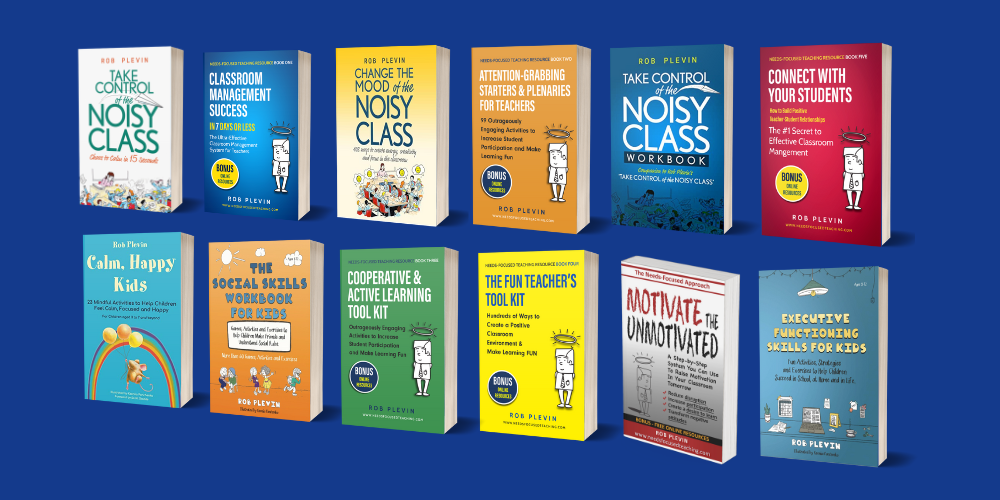Novel Classroom Management Tools to Motivate Reluctant Learners

1. TARGETS

Overview:
Many students find it daunting and off-putting when presented with what they perceive to be 'too much' work as part of a lesson task- particularly text-based work. The idea of 'Targets' is to give students 'chunked' tasks - an achievable amount of work which must complete in a set amount of time
Instructions:
Targets can be issued to students before or during text based tasks: "Jonny, your target is to get down to #3 in the next ten minutes", or "Jonny, you need to write down to here in the next fifteen minutes" (teacher places a destination pencil mark in the student's book).
TIP: To avoid students arguing that their target is too much for them try speaking to them before the lesson: "Jonny, I have given you a high level target today because you worked so well last lesson. I know you can achieve this and I wouldn't be doing my job properly if I didn't try to stretch you and help you reach your potential. OK?"
2. SECRET AGENT

Overview:
The Secret Agent Card, sometimes called 'Mystery Student', is a very effective tool for encouraging participation in lessons. It can be used to help students meet specific, individual learning targets or simply to ensure students' general contributions and efforts are acknowledged.
Instructions:
- At the beginning of class, announce that today one student will be chosen as the Secret Agent and that it is the job of the agent to... make positive contributions/play fairly/stay in own seat/complete his/her learning objective etc.
- Each student is given a card, signs it and places it in a bag or box.
- A card is chosen by the teacher (in secret) and the teacher monitors this student's behaviour throughout the lesson. 4. If the student does well, a reward is given to the class and the student's name is revealed resulting in positive peer relationships.
- If the student fails to meet the agreed targets, his/her name is kept secret to avoid negative peer pressure. No reward is allocated.
3. PASS IT ON

Overview:
Pass It On is a questioning technique which takes the pressure off students when they don't know the answer.
If they can't answer a question asked by the teacher they have the opportunity to say 'Pass It On' and the teacher then asks another student the same question. (The student can nominate the next student to be asked as a variation). The new student has the same choice - answer or 'Pass It On'.
If the new student is able to answer the question correctly, any students who previously called 'Pass It On' must to repeat the student's correct answer and/or write the answer down in their books.
4. BEHAVIOUR SPY

Overview:
The Behaviour Spy Card is a useful monitoring and assessment tool for student behaviour. It can be used to focus on specific behaviours and individual targets such as 'putting hand up to ask questions', or simply as a means by which students' contributions and efforts are noticed and valued. This is often a very positive experience for both 'Spy' and 'Spy-ee' and can help build supportive peer relationships.
Instructions:
Teacher prepares cards in advance by writing each student's name on an individual card. At the start of the lesson each student is then given one of the cards with a classmate's name written on it. The 'Behaviour Spy' watches for incidents of positive behaviour from the student they are spying on and records them on the card.
At the end of the lesson the teacher reads out comments from some of the cards and students have to guess which of their classmates the comments relate to.
5. ADVANCED WARNING

Overview:
The Advanced Warning card is a way of reducing students' various forms of participation. It could, for example, be used anxiety by giving them time to prepare themselves for to give students a quick 1-3 three minute warning about an impending quick question during lesson time, at the start or end of a lesson to help a student (or a group of students) prepare for a more in-depth contribution (a review or summary) later on the lesson or it can be used to give students a focus for next lesson.
Instructions:
Teacher prepares cards in advance by writing the 'warning' for individual students or groups e.g. "I'll be calling on you to share your answers about question three in the text book Jonny. The cards are distributed at the start/end of lesson or can be clipped to marked books when returning them to students.
Learn more from Needs Focused Teaching…
Search for our books on Amazon right now:




